Related Research Articles

John Potter was Archbishop of Canterbury (1737–1747).
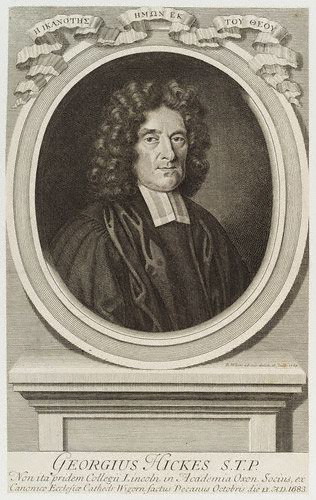
George Hickes was an English divine and scholar.

Benjamin Hoadly was an English clergyman, who was successively Bishop of Bangor, of Hereford, of Salisbury, and finally of Winchester. He is best known as the initiator of the Bangorian Controversy.

Samuel Chandler was an English Nonconformist minister and pamphleteer. He has been called the "uncrowned patriarch of Dissent" in the latter part of George II's reign.

White Kennett was an English bishop and antiquarian. He was educated at Westminster School and at St Edmund Hall, Oxford, where, while an undergraduate, he published several translations of Latin works, including Erasmus' In Praise of Folly.

Richard Smallbrooke was an English churchman, Bishop of St David's and then of Lichfield and Coventry.
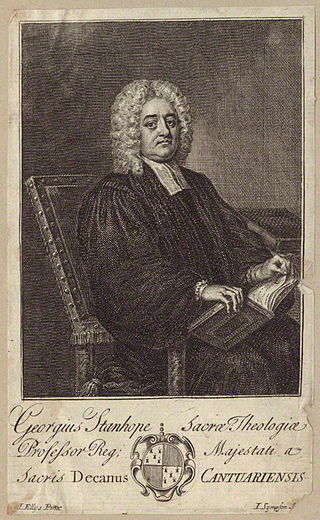
George Stanhope was a clergyman of the Church of England, rising to be Dean of Canterbury and a Royal Chaplain. He was also amongst the commissioners responsible for the building of fifty new churches in London, and a leading figure in church politics of the early 18th century. Stanhope also founded the Stanhope School in 1715.

Joseph Trapp (1679–1747) was an English clergyman, academic, poet and pamphleteer. His production as a younger man of occasional verse and dramas led to his appointment as the first Oxford Professor of Poetry in 1708. Later his High Church opinions established him in preferment and position. As a poet, he was not well thought of by contemporaries, with Jonathan Swift refusing a dinner in an unavailing attempt to avoid revising one of Trapp’s poems, and Abel Evans making an epigram on his blank verse translation of the Aeneid with a reminder of the commandment against murder.

Samuel Bradford was an English churchman and whig, bishop successively of Carlisle and Rochester.
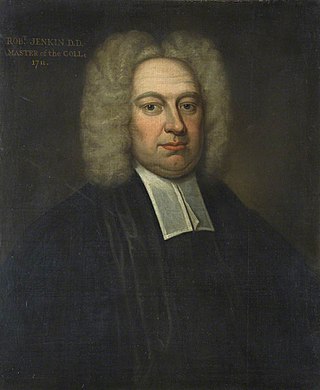
Robert Jenkin was an English clergyman, a nonjuror of 1698, later Master of St John's College, Cambridge, Lady Margaret's Professor of Divinity, and opponent of John Locke.
Francis Hare (1671–1740) was an English churchman and classical scholar, bishop of St Asaph from 1727 and bishop of Chichester from 1731.
Arthur Ashley Sykes (1684–1756) was an Anglican religious writer, known as an inveterate controversialist. Sykes was a latitudinarian of the school of Benjamin Hoadly, and a friend and student of Isaac Newton.
Thomas Brett (1667–1743) was an English nonjuring clergyman known as an author.
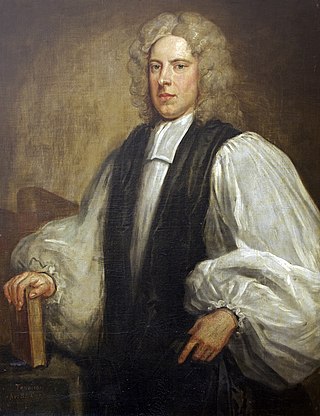
Edward Tenison (1673–1735) was an English bishop of Ossory. An example of the workings of the system of patronage in the Church of England, Tenison also was a significant Whig and controversialist.
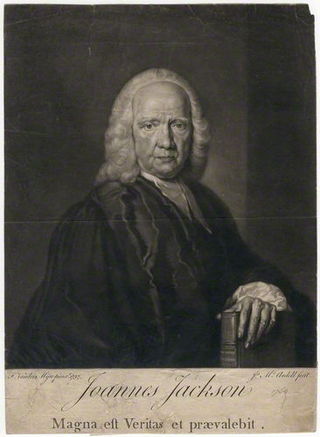
John Jackson (1686–1763) was an English clergyman and controversial theological writer.

Andrew Snape (1675–1742) was an English cleric, academic and headmaster, provost of King's College, Cambridge from 1719.
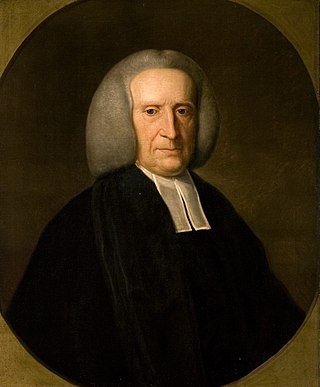
William Richardson (1698–1775) was an English academic and antiquary, Master of Emmanuel College, Cambridge from 1736.

Joseph Smith (1670–1756) was an English churchman and academic, Provost of The Queen's College, Oxford, from 1730.
References
- ↑ "Pyle, Thomas (PL692T)". A Cambridge Alumni Database. University of Cambridge.
- ↑ Charles Spurgeon's verdict on this work, in Commenting and Commentaries, "A pile of paper, valuable to housemaids for lighting fires" is Thomas Pyle's only claim to fame in Evangelical circles.
- Thomas Pyle by E. G. Hawke, revised by Andrew Robinson, in Oxford Dictionary of National Biography
- Venn's Alumni Cantab.
- The History of Lynn by William Richards, (2 volumes 1813), 1012–23
- The History and Antiquities of King's Lynn by B. Mackerell (1738), 89
- English Church Life from the Restoration to the Tractarian Movement by J. W. Legg (1914)
- Memoirs of a Royal Chaplain, 1729–1736 by Edmund Pyle, ed. A. Hartshorne (1905)